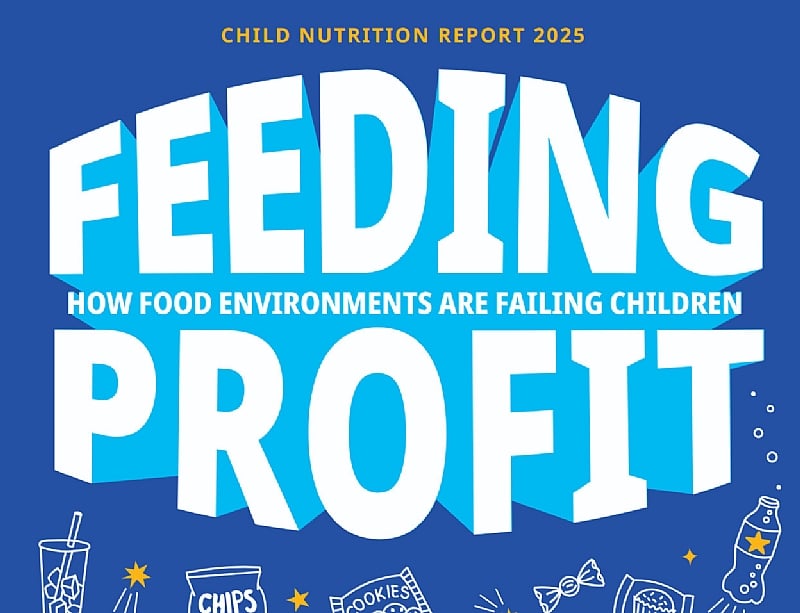Childhood malnutrition is undergoing a significant shift, with obesity overtaking underweight as the more prevalent concern. A 2025 UNICEF report, “Feeding Profit: How Food Environments are Failing Children,” reveals that while underweight rates among children aged 5-19 have decreased globally since 2000, obesity rates have surged, now affecting 1 in 10 children within this age group. This translates to a staggering 188 million children facing increased risks of life-threatening diseases like type-2 diabetes, cardiovascular disease, and certain cancers. This trend is particularly pronounced outside of sub-Saharan Africa and South Asia, with several Pacific Island nations experiencing alarming obesity rates exceeding 30%, often attributed to the replacement of traditional diets with inexpensive, calorie-dense imported foods. High-income countries also grapple with significant childhood obesity levels, underscoring the pervasive nature of this emerging crisis. This shift signifies a broadened understanding of malnutrition, moving beyond solely focusing on underweight children to encompass the growing threat of obesity and its long-term health implications.
The rise in childhood obesity is inextricably linked to the proliferation of ultra-processed and fast foods. These products, laden with sugar, refined starch, salt, unhealthy fats, and additives, have become increasingly dominant in children’s diets, not primarily due to personal choices but rather due to the pervasive influence of unhealthy food environments. These environments are shaped by factors like the accessibility and affordability of these foods in shops and schools, coupled with the persuasive power of digital marketing targeted at young audiences. A global poll conducted through UNICEF’s U-Report platform revealed the significant exposure of young people to advertisements for unhealthy foods and drinks, influencing their consumption patterns and driving the demand for these products. Even in conflict-affected areas, a substantial majority of surveyed youth reported exposure to such marketing campaigns, highlighting the widespread reach of the food industry’s promotional strategies. This underscores the need for comprehensive interventions aimed at reshaping food environments and empowering children and families to make healthier dietary choices.
The health and economic consequences of unchecked childhood obesity are projected to be substantial. The global economic impact of overweight and obesity is expected to surpass US$4 trillion annually by 2035. Individual countries, like Peru, face potential lifetime costs exceeding US$210 billion due to obesity-related health issues. These figures highlight the urgent need for proactive measures to address this growing crisis and mitigate its long-term effects. Implementing strategies to promote healthy eating habits and combat the influence of unhealthy food environments can yield substantial economic benefits in addition to improving public health outcomes. The escalating costs associated with obesity-related illnesses underscore the importance of investing in preventative measures and promoting healthier lifestyles from an early age.
Governments worldwide are adopting various strategies to combat the growing obesity epidemic. Mexico, for example, has implemented a ban on the sale and distribution of ultra-processed foods and sugary drinks in public schools, directly impacting the food environment for over 34 million children. This measure exemplifies a proactive approach towards improving children’s access to nutritious food within educational settings. Other strategies include implementing comprehensive mandatory policies to improve food environments, implementing social and behavior change initiatives that empower families and communities to demand healthier food choices, banning or restricting the sale and marketing of junk food in schools, protecting public policy processes from undue influence by the food industry, and strengthening social protection programs to improve financial access to nutritious diets. These multifaceted approaches are crucial for creating supportive environments that facilitate healthier eating habits and contribute to long-term health improvements.
UNICEF advocates for a comprehensive, multi-pronged approach to address the escalating childhood obesity crisis. The organization calls for the implementation of mandatory policies to improve food environments, including food labeling, marketing restrictions, and taxes and subsidies to incentivize healthier choices. Equally important is the engagement of communities and families through social and behavioral change initiatives, empowering them to demand and create healthier food environments. Protecting children from the pervasive marketing of unhealthy products, especially within schools, is another key element of this approach. Furthermore, UNICEF emphasizes the importance of safeguarding public policy processes from the influence of the ultra-processed food industry, ensuring that regulations prioritize public health over commercial interests. Strengthening social protection programs is also crucial for addressing income poverty and improving access to nutritious foods for vulnerable families, ensuring that all children have the opportunity to thrive.
The changing landscape of malnutrition, with obesity now surpassing underweight as the dominant concern, requires a fundamental shift in our approach to nutrition and food systems. The increasing prevalence of childhood obesity, driven largely by the pervasive influence of unhealthy food environments, carries profound implications for both individual and global health and economic well-being. Combating this crisis necessitates collaborative efforts from governments, civil society, and international organizations. Implementing comprehensive policies to reshape food environments, promoting healthy eating habits, and protecting children from the pervasive marketing of unhealthy products are crucial steps in addressing this urgent challenge. By prioritizing nutritious food access and promoting healthy lifestyles, we can create a healthier future for children and mitigate the long-term consequences of this growing epidemic.


